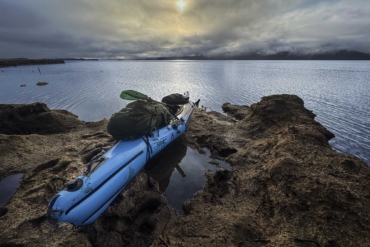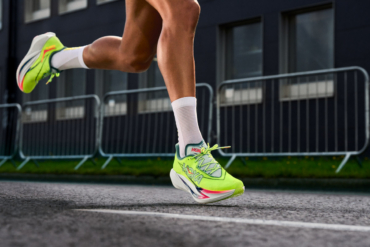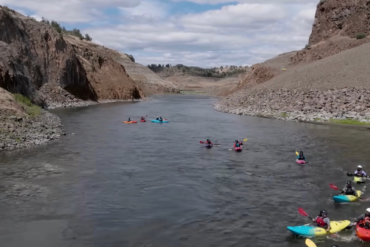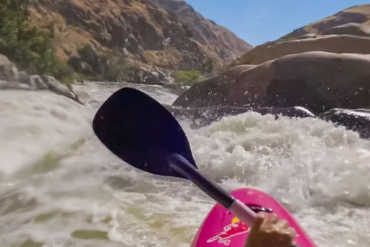For years, Virginia Tech’s testing lab has done independent work evaluating helmets on safety. But many may not know it goes beyond biking and climbing helmets — all the way to the whitewater waves.
It’s important to note that all helmets that come to market, including ones we trust by a variety of outdoor brands, are evaluated to pass certain safety standards. For climbing and mountaineering, for example, that certification is EN 12492. For watersports, the required standard is EN 1385 for Class 1-4 Whitewater.
There are typically five or six required components that must be met for any helmet to be certified. Helmets must have a proper extent of coverage, field of vision, shock-absorbing capacity, a certain level of protection and durability, and more.
Beyond those requirements, Virginia Tech lab ratings (ideally five-star) are quickly becoming another standard.
Virginia Tech Helmet Ratings
How It Works
It’s important to note that VA Tech’s methods for testing and rating helmets differ based on the sport category. So, don’t go comparing these scores to a five-star-rated bike helmet, for example.
For watersports, Virginia Tech rates each helmet based on the results of six impact tests, using a pendulum impactor.
The lab measures things like linear and rotational acceleration for each impact, which correlate to concussion risk. It also tests the helmet’s front, side, and back at two impact energies based on whitewater river flow rates.
Each lab helmet impact is weighted to contribute equally to the average helmet’s overall score.
Simply put, the results of these impact tests align with a certain amount of concussion risk. More risk means a higher overall score (less good in terms of protection).
So in the Virginia Tech rating system, a lower score offers better protection. And it’s only with scores below a number threshold (a score of one) that get awarded its coveted five stars.
Looking at the 24 different helmets VA Tech put through impact tests and evaluation, something becomes very clear: Sweet Protection dominates.
5-Star-Rated Whitewater Helmets: Top 5
There are 24 helmets from varying brands — NRS, Shred, Sweet Protection, WRSI, and Gath tested in this category. Of the 24, every single helmet that made the top five is a Sweet Protection model.
You can read the full details online, but suffice it to say, Sweet takes the cake! No other brand secured a full five-star rating in VA Tech’s testing.
Sweet Protection Wanderer II
The Wanderer II is a great value helmet. It’s got a carbon-reinforced ABS shell with EPP padding, venting, and a wicking lining.
Updates from the Wanderer include the straps, buckles, and liner. $130 MSRP.
Virginia Tech Score: 0.33
Sweet Protection Rocker (Full Face)
Just what it sounds like, the Sweet Pro Rocker Full Face offers full-face coverage in waters where extra protection is necessary. The helmet, like the others on this list, is carbon-fiber-reinforced. It also has more venting around the front of the face. $330 MSRP.
Virginia Tech Score: 0.36
Sweet Protection Sweet Rocker Dagger Edition
A special-edition helmet made with Dagger Kayaks, the Sweet Rocker Dagger offers the same Rocker-design protection with a carbon-fiber-reinforced lightweight shell and a signature Dagger-red kayak and topo line print. $260 MSRP; limited stock available online.
Virginia Tech Score: 0.56
Sweet Protection Rocker
The Rocker helmet is a high-performance helmet, with a carbon-fiber-reinforced and injection-molded thermoplastic shell. The helmet has more face protection, molded earpads for comfort, and a visor. $229 MSRP.
Virginia Tech Score: 0.83
Sweet Protection Wanderer (Discontinued)
The Sweet Protection Wanderer helmet was a staple for years, with a simple yet protective design.
You can still find a few OG helmets secondhand online, though we recommend the updated Wanderer II.
Virginia Tech Rating: 0.25















